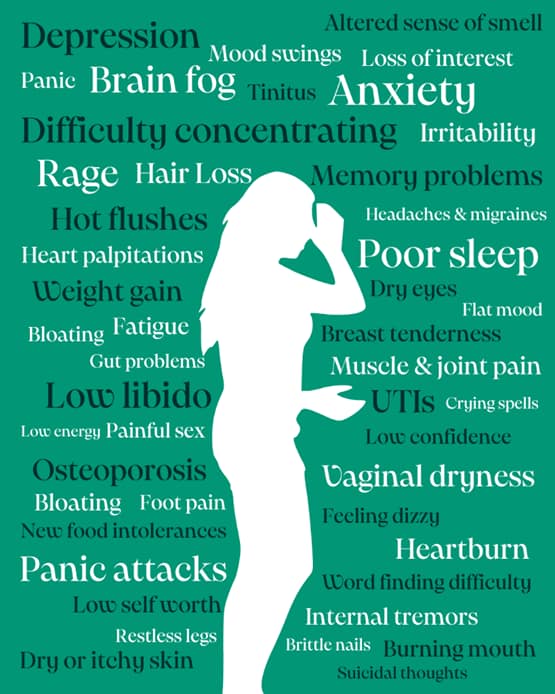
Why teaching your (grand)parents how the computer works is so challenging: The Neuroscience of Learning and Healthy Aging
Small disclaimer: I am exaggerating in the title. My own mother – who turned 68 this year – is probably the most tech-savvy retired person I know. In fact, I am writing this as she is fighting a vicious battle with the printer in an attempt to hook it up to the Wi-Fi network. Aside from a few swear words directed more at the printer than at me, she hasn’t asked me for help yet.
Nevertheless, there is this popular conception that acquiring new skills just doesn’t work as well anymore when we are older. Whether it is learning how a smartphone works or even something non-technological like learning a new language: “You can’t teach an old dog new tricks,” they say. And indeed, in our experiments that we conduct in the controlled setting of a laboratory, older participants continuously underperform in learning tasks. As a neuroscientist, I asked myself: But why?
What is learning?
The textbook definition of learning is “a change in behavior that is due to experience” (De Houwer et al., 2013). From an evolutionary perspective, learning benefits our survival, and learning new behaviors helps us to navigate through a changing environment. Most species possess some ability to learn, even slime mold, which is a single-cellular organism – although people are still trying to figure out how that works with the clear absence of a brain (Boussard et al., 2021). At the center of all this is our environment, or rather, the feedback from that environment, which tells us what and how to learn. For instance, a delicious bowl of ice cream will make us want to go to the same ice cream parlor again next time. Learning also involves changing our behavior when the environment has changed: If the ice cream parlor’s quality drops, it’s time to look for a new place. On a larger scale, our environment is ever-changing – just think about the technological advancements we went through in the last thirty years, and how we learned to adapt to them.
In the lab, we assess learning and its interaction with the environment by asking participants to perform a probabilistic learning task: Participants are presented with multiple options to choose from – which can be as straightforward as pictures of faces and houses (van den Berg et al., 2019), or as abstract as spatial locations on a computer screen (Pütz et al., 2022) – and are being told that one of those options will have a high probability of reward if they choose it. We don’t tell them which option is the best one, they have to learn it themselves. The “reward” is actually the presentation of the words “loss” and “gain”, which we show them after each choice, and which emulates feedback from our environment in a more direct and simple form. The feedback is tied to actual monetary gain and loss too, to make the whole deal more interesting to them. This experimental setup aims to mirror what humans do when learning from experience and feedback: they aim at finding the option that gives them the best possible outcome – finding the ice cream parlor with the most delicious ice cream.
So why does learning seem to be so much less efficient in the elderly? Our research points to several reasons: Neuroscientific research of the past two decades has shown that the brain already distinguishes between feedback losses and gains within 200 milliseconds of being presented with them (Pütz et al., 2022) – an incredibly fast processing time. To put that into perspective: the average duration of a human eye blink lies within 100 to 400 ms (Schiffman, 2001). Interestingly, that very same brain signal becomes less distinguishable in older participants, which seems to be primarily due to a decline in perceiving gains rather than losses (Samanez-Larkin 2014; de Haan et al., 2021). Anecdotally, I have had a few older participants tell me that they are not in it for the money, despite being compensated with money for their learning performance in the experiment. Could this mean that their lowered response to positive feedback is the reason for the slower learning we observe in these studies?
The answer is: It’s not so simple. Although studies indeed find that elderly show smaller responses to positive feedback, the same studies also show that the neural response to mere reward is very similar for younger and older participants (Samanez-Larkin et al., 2014). Thus, older participants are able to perceive and process reward itself quite well, but as soon as learning enters the field, the response to reward in the brain drops. What’s more, some researchers have found that older participants learn equally well from gains and losses, showing that it’s not just the processing of gains that is selectively affected with age (Simon et al., 2010).
It’s the classic “more research is needed” situation that most scientists are familiar with. On top of that, learning goes beyond the mere recognition of gains and losses. For instance, we need to evaluate whether our current feedback (the ice cream at the parlor we are currently eating) is better than previous feedback (the ice cream from last week’s parlor), and whether it’s worth adjusting our behavior (it is, today’s ice cream is definitely better, and we will from now on buy ice cream here). Some findings suggest that older participants are less able to make such comparisons, which rely on integrating past choices and experiences into current behavior. In our experiments, we see that older people switch their choices a lot more often than young people, who are more likely to stick to one choice to see how it goes (de Haan et al., 2021).
We need to consider one more important aspect when studying learning and aging: Individuals within older participant groups differ in an entire lifetime of experiences that have led to that moment of participating in our lab study. We see that a decline in learning performance is also accompanied by a larger variation in learning performance. Some older participants are actually more reactive to positive feedback than negative feedback, and vice versa (Simon et al. 2010); some stick to their initial choice until the end of the learning task, and some switch their choice throughout. Although it’s only anecdotal evidence, I have also encountered older participants in my experiments who performed just as well as the younger participants. The influence of a lifetime of learning on the learning process can also be seen in laboratory mice bred to be genetically identical (de Fiebre et al., 2006). Even in them, we see large variability in learning behavior towards the end of their lifespan. In light of these findings, if I could, I would follow people throughout their whole life and measure their brain responses at every single life stage to pinpoint what makes some of them learn better than others. For now, I’ll unfortunately have to stick to old-vs.-young comparison studies.
From the processing of environmental feedback, to the updating of said feedback, all the way to individual variation in performance—there is much to know and even more to study in the neuroscience of aging and learning. Yet, at the end of the day, one might ask oneself: How can we improve our own learning performance when we are older? Studies on predictors of healthy aging and healthy learning report the usual suspects: Older adults that are good at learning and at cognitive tasks, also live an active and engaged lifestyle, both mentally and physically (Fritsch et al., 2007, Sanchez-Izquierdo et al., 2021). Therefore, we can conclude that trying to learn new skills and acquiring new knowledge throughout your life predicts good learning performance later in life. Learning for learning’s sake, cheers to that!
References
van den Berg, B., Geib, B. R., San Martín, R., & Woldorff, M. G. (2019). A key role for stimulus-specific updating of the sensory cortices in the learning of stimulus–reward associations. Social cognitive and affective neuroscience, 14(2), 173-187.
Boussard, A., Fessel, A., Oettmeier, C., Briard, L., Döbereiner, H. G., & Dussutour, A. (2021). Adaptive behaviour and learning in slime moulds: the role of oscillations. Philosophical Transactions of the Royal Society B, 376(1820), 20190757.
de Fiebre, N. C., Sumien, N., Forster, M. J., & de Fiebre, C. M. (2006). Spatial learning and psychomotor performance of C57BL/6 mice: age sensitivity and reliability of individual differences. Age, 28(3), 235-253.
De Haan, T., Van den Berg, B., Woldorff, M. G., Aleman, A., & Lorist, M. M. (2021). Diminished Feedback Evaluation and Knowledge Updating Underlying Age-Related Differences in Choice Behavior During Feedback Learning. Frontiers in human neuroscience, 15, 635996.
De Houwer, J., Barnes-Holmes, D., & Moors, A. (2013). What is learning? On the nature and merits of a functional definition of learning. Psychonomic bulletin & review, 20(4), 631-642.
Fritsch, T., McClendon, M. J., Smyth, K. A., Lerner, A. J., Friedland, R. P., & Larsen, J. D. (2007). Cognitive functioning in healthy aging: the role of reserve and lifestyle factors early in life. The Gerontologist, 47(3), 307-322.
Pütz, C., van den Berg, B., & Lorist, M. M. (2022). Dynamic modulation of neural feedback processing and attention during spatial probabilistic learning. Iscience, 25(5), 104302.
Schiffman, H.R., Sensation and Perception. An Integrated Approach, New York: John Wiley and Sons, Inc., 2001
Simon, J. R., Howard Jr, J. H., & Howard, D. V. (2010). Adult age differences in learning from positive and negative probabilistic feedback. Neuropsychology, 24(4), 534.
Sánchez-Izquierdo, M., & Fernández-Ballesteros, R. (2021). Cognition in healthy aging. International journal of environmental research and public health, 18(3), 962.
Samanez-Larkin, G. R., Worthy, D. A., Mata, R., McClure, S. M., & Knutson, B. (2014). Adult age differences in frontostriatal representation of prediction error but not reward outcome. Cognitive, Affective, & Behavioral Neuroscience, 14(2), 672-682.




